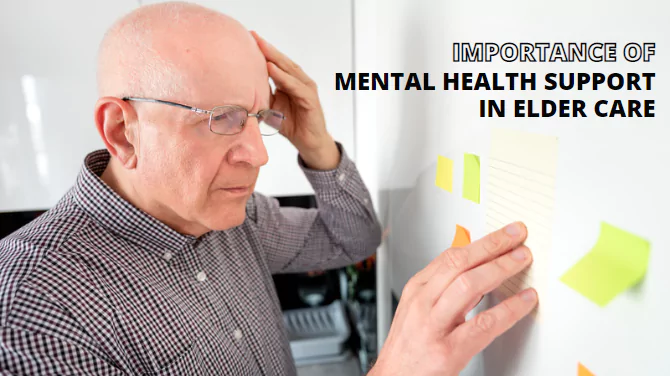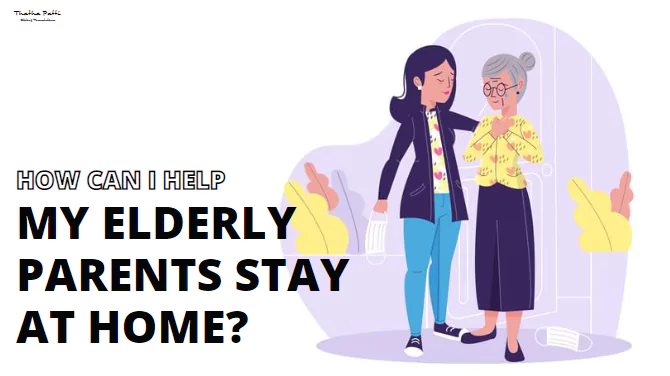- June 01, 2023
- Mental health support
Importance of mental health support in elder care

As we age, our physical and mental health tend to decline. Elderly individuals are at a greater risk of developing mental health problems due to factors such as social isolation, chronic illness, and the loss of loved ones. Mental health problems in older adults can affect their quality of life, and in some cases, their ability to function independently. Mental health support is crucial in elder care to ensure that elderly individuals receive the care and support they need to live healthy and fulfilling lives.
One of the most common mental health problems among elderly individuals is depression. Depression in older adults is often underdiagnosed and undertreated. Symptoms of depression in older adults can be different from those experienced by younger individuals. For example, instead of feeling sad or blue, older adults may experience a lack of interest in activities they once enjoyed, sleep disturbances, and unexplained physical complaints such as headaches and fatigue. Mental health support in elder care can help identify depression early and provide appropriate treatment.
Anxiety is another mental health problem that affects older adults. Anxiety disorders in older adults can be caused by a variety of factors, including physical illness, chronic pain, and social isolation. Anxiety can lead to physical symptoms such as trembling, sweating, and a rapid heartbeat. Mental health support in elder care can help identify anxiety disorders and provide appropriate treatment, such as medication or therapy.
Dementia is a common condition among older adults, and it can have a significant impact on mental health. Dementia can cause confusion, memory loss, and difficulty with decision-making. Mental health support in elder care can help manage the symptoms of dementia and provide support for both the individual and their caregivers.
Social isolation is a common problem among older adults, particularly those who live alone or in care homes. Social isolation can lead to depression, anxiety, and a decline in physical health. Mental health support in elder care can provide opportunities for social interaction and help individuals connect with others.
Physical health problems can also have an impact on mental health in older adults. Chronic pain, mobility problems, and other physical health conditions can lead to depression and anxiety. Mental health support in elder care can help manage the symptoms of physical health problems and provide support for individuals to maintain their independence and quality of life.
Mental health support is crucial in elder care to ensure that elderly individuals receive the care and support they need to live healthy and fulfilling lives. Mental health problems in older adults can have a significant impact on their quality of life, and early identification and appropriate treatment are essential. Mental health support in elder care can help manage the symptoms of depression, anxiety, dementia, and other mental health problems and provide opportunities for social interaction and support for physical health problems. It is essential to prioritize mental health support in elder care to ensure that elderly individuals can maintain their independence and quality of life.





